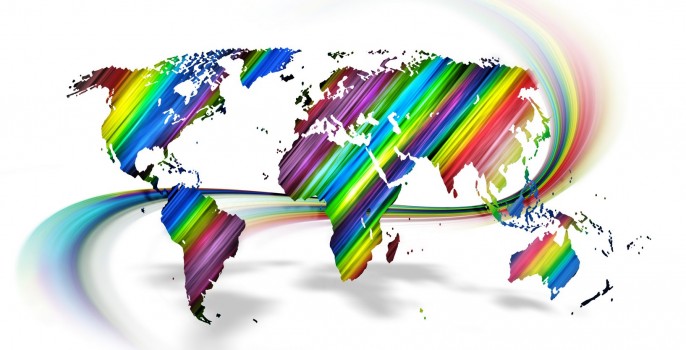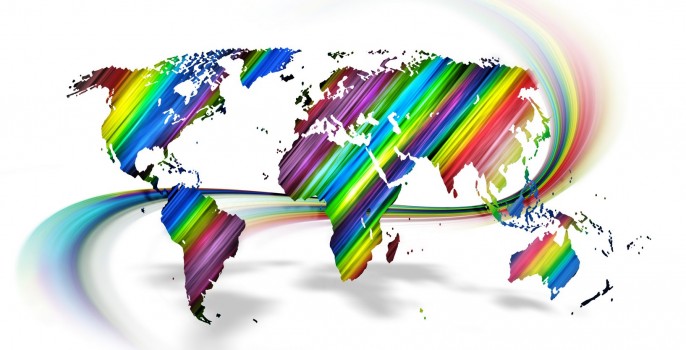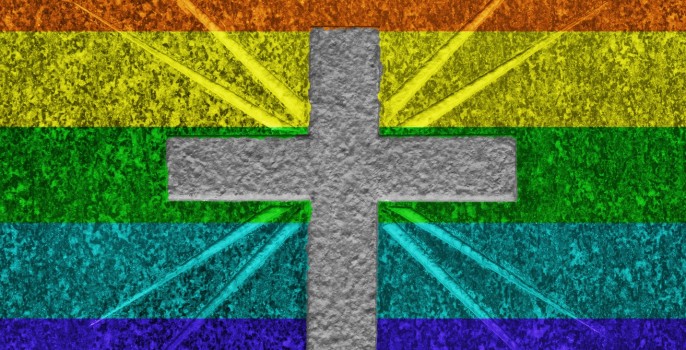May 17 in Uganda was marked by many events by several different organisations, spread out over the week leading up to the Day. Actions included a roundtable discussion with Ugandan journalists focussed on homophobic violence, activities from bisexual women’s-led organisations centred on highlighting community specific health questions and discriminations, and the sharing of testimonies of transphobic violence amongst the community. Advocacy workshops, a talent show and an exhibition project also marked the year’s commemorations. On May 17, a joint event – involving the participation of various different sexual and gender rights associations, and their allies – was also held, centred on the screening of three documentaries.
In addition to events, various Ugandan organisations marked the Day with statements calling for government abandonment of repressive legislation projects, and greater attention to effective HIV/AIDS prevention, treatment and support.
Some additional details of select activities follow:
Spectrum Uganda marked May 17 with a series of activities to raise awareness about HIV/AIDS in Uganda
Public health and social justice advocate Kity o James explains: ‘Today is the International Day against Homophobia and Transphobia and Spectrum Uganda is marking it with a series of activities to raise awareness of HIV/AIDS issues among sexual minorities, to challenge stigma and homophobia, and to increase support to people living with HIV to lead productive lives.
Spectrum Uganda is holding discussions between health workers, the media and LGBTI organisations (lesbian, gay, bisexual, transgender and intersex), and providing HIV testing and counselling. It is specifically calling for increased HIV testing among sexual minority groups in Uganda.
According to Musa Kimbugwe, the Executive Director of Spectrum Uganda:
“This year’s celebration should be an inspiration for all to come forward to be tested for HIV/AIDS because many people in Uganda don’t know their HIV status. We encourage the community to take advantage of the team of doctors and other health workers who are ready to handle your health concerns; voluntary counselling and testing services are available.”
Referring to the “anti-gay bill” currently shelved in the Uganda parliament, Musa Kimbugwe noted:
“The consequences of the anti-homosexuality bill in the fight against HIV/AIDS in the LGBTI community are very serious, making people go underground and constraining health workers and other service providers. Spectrum Uganda only asks you to respect the human rights of all people including LGBTI people. We strongly appeal to government and members of parliament not to enact the anti-homosexuality Bill, and to move faster to include LGBTI people in the national health policy if we are to achieve zero HIV at all levels.”’
Activists also called on the media to stop outing LGBT people
The statement also called on the Ugandan government to abandon the ‘Kill the Gays’ bill.
It was produced by Sexual Minorities Uganda (SMUG) and other members of the Ugandan Lesbian Gay Bisexual Transgender and Intersex community, and can be read in full here.
The community group Freedom and Roam Uganda (FARUG) also marked May 17 with a statement:
They advised that they were not marking the Day with a public activity this year. As they explained: ‘In the past, FARUG has always gathered members, lit candles and celebrated the lives of those who have been prosecuted and killed while selflessly fighting for the rights of sexual minorities the world over. Today, however, no special events have been planned but we shall join the rest of LGBTI organizations in Uganda and celebrate at a later date which will be communicated.’
The statement can be read in full here.
A coalition of East African LGBTI and HIV/AIDS groups published a May 17 press release focused specifically on Uganda
The press release was published as a statement of relevance also for the World AIDS Vaccine Day (May 18), and the International AIDS Candlelight Memorial Day (every third Sunday in May)
You can read it in full here:
Press statement on the Occasion of Marking World AIDS Vaccine Day, the 30th International AIDS Candlelight Memorial Day and International Day against Homophobia, Biphobia and Transphobia (IDAHOBIT)
For Immediate Release
_______________________________________________________________________________________________________
Media and CSO advisory issued by:
Crested Crane Lighters
East African LGBTI Visual Artists
Midcentral Network for Sexual Health and Rights,Mityana
Global Coalition of Women Against Aids in Uganda
Uganda Civil Society Coalition on Human Rights and Constitutional Law
Women’s Organization Network for Human Rights Advocacy
Forum for Minority Rights
Sexual Health And Reproductive Rights For Youth
i freedom Uganda
Freedom and Roam Uganda
Transgender Equality Uganda
Kaana Foundation,Kasese
Positive Men’s Union
Support on Aids and Life through Telephone Help Line
Ice breakers Uganda
Support Initiative for People with Congenital Disorders
Health GAP (Global Access Project)
____________________________________________________________________________________________________
Kampala, May 15, 2013: On the occasion of marking three International Days beginning May 17ths aiming at scaling down HIV/AIDS infection and getting to zero infection, zero deaths; and towards an HIV free generation, we the above Civil Society Organizations in Uganda working with Most At Risk Population groups, make this call of urgency to the Uganda government and Uganda Aids Commission in particular, to expedite the formulation of a national framework on HIV prevention and treatment service provision for Most At Risk Population groups, particularly sex workers, transgender persons and Men who Have sex with Men and Women who have sex with Women.
This framework should also require non discrimination and describing quality institutional responses to counseling, care, treatment and support needs for Most At Risk Population groups without discrimination among the MARPS.
MSM and transgender people are still not reflected in national HIV/AIDS programming and support as a key population. Women who have sex with Women (WSW) in Uganda also have critical health needs, and the country must commit to comprehensively addressing the health priorities of this population, without stigma or discrimination.
These actions to address the urgent health needs of key populations are particularly important, given the fact that Uganda is one of a small minority of countries with generalized, mature HIV epidemics that are reporting rising HIV prevalence. In Uganda, prevalence has risen from 6.4 to 7.3% between 2006 and 2012 and incidence is also estimated by Ministry of Health to have increased between 2005 and 2011. Importantly, Uganda is the only PEPFAR “Focus Country” reporting rising HIV incidence—all other PEPFAR focus countries have consistently reported declines in incidence as well as prevalence in recent years. Importantly, Uganda’s prevention funding is not matched to drivers of the epidemic according to Uganda’s 2011 National Prevention Strategy. Effective, evidence-based HIV prevention targeting vulnerable populations such as serodiscordant couples, fishing communities, sex workers, men who have sex with men, transgender people, migrant populations and prisoners are not receiving proportionate funding for proven interventions.
In one study, rates of HIV infection among men who have sex with men in Kampala were almost twice as high as the national average of 7.3% and those study respondents who reported ever having been exposed to homophobic abuse were five times as likely to be HIV positive compared with peers who had never experienced homophobic abuse.(See: “HIV Infection among Men Who Have Sex with Men in Kampala, Uganda–A Respondent Driven Sampling Survey,” PLoS ONE 7(5): e38143. doi:10.1371/journal.pone.0038143, 2012.) Unlike other African countries that have aggressively sought to reach vulnerable populations with services and support and that are reporting declining rates of new infections, Uganda’s HIV incidence is rising, triggering concern and criticism.
Vulnerable and isolated communities including men who have sex with men typically experience higher HIV Infection rates as stigma and bigotry deter them from accessing essential medicines, prevention services, counseling, and public health information. This endangers not only them and their communities but also the Ugandan population at large. The Global Commission on HIV and the Law recently presented incontrovertible evidence that discriminatory legislation that criminalizes homosexuality enhances HIV-related risks among men who have sex with men and other vulnerable groups most at risk of the epidemic and related infections.
“The framework we are calling for should also help institutions and bilateral donors to the AIDS response make sound interventions in all MARPS without being labeled ‘homosexuality promoters,’ while ensuring a minimum essential package of quality services delivered without discriminations and according to evidence and best practice, ” Said Kikonyogo Kivumbi, the Executive Director of sexual and gender minority lobby group, UhspaUganda.
“We are in a dilemma. When we try to sensitise our own in MSM, WSW and sexworkers community, the government says we are promoting. Officials actually intimidate and close such spaces where we offer prevention, VCT and positive living information. How then as a country can we move to zero new infections and deaths when a certain population is left as a reservoir of the virus because of who they are or how they live their lives,” Mr. Vicent Kyabayinze, the Executive Director of East African LGBTI Visual Artists said.
While we understand and appreciate the ongoing debate on same sex relationships within the Ugandan context, we appeal to Uganda Aids Commission to remain in Charge and advise HIV policy making accordingly, because health can not wait.
We also specifically ask the Ugandan government to:
- Incorporate MSM, WSW, transgender people and other key populations in its National Implementation Guidelines for HIV Counseling and Testing in Uganda (2012) to enable civil society serving the most vulnerable groups offer support needed to scale up positive health seeking behavior, treatment and social support.
- Urgently scale up national investments in treatment and evidence based prevention, taking advantage of new WHO treatment guidelines that will recommend treatment for all people at CD4<500, leveraging the powerful and cost savings clinical and prevention benefit of HIV treatment.
- Drop the contentious Anti Homosexuality Bill 2009 from Ugandan Parliament in its entirety as it will hinder the progress of hiv programming towards the Lesbian, Gay, Bisexual and Transgender community.
- Incorporate the right to health of MSM and WSW in the HIV/AIDS Control Bill yet for re-tabling in Parliament.
- Prevail over Uganda Revenue Authority not to confiscate supplies of lubricants and HIV/STI prevention basic supplies under the guise that they are tools of homosexuality.
- Introduce and distribute condom compatible lubricants as part of the condom packaging within the Condom strategy for both MSM, sexworkers and heterosexuals to reduce on incidences of condom tear.
- Incorporate and streamline Rights of intersex children at birth within the operationalisation of Ministry of Gender’s Orphans and Vulnerable Children’s guidelines. The ministry of Health should come up with a comprehensive central registry where such cases of mothers giving birth to intersex babies who are also HIV positive can be recorded to aid national programming and design.
Notes for the Editor and further reading:
The International Day Against Homophobia, Biphobia and Transphobia (IDAHOBIT) IDAHOBIT was conceived in 2004 to commemorate the WHO’s decision to remove homosexuality from its list of mental disorders in 1990. A year-long campaign culminated in the first IDAHOBIT on May 17, 2005. 24,000 individuals as well as organizations such as the International Lesbian and Gay Association (ILGA), the International Gay and Lesbian Human Rights Commission (IGLHRC), the World Congress of LGBT Jews, and the Coalition of African Lesbians signed an appeal to support the IDAHOBIT initiative. IDAHOBIT activities took place in many countries, including the first LGBT events ever to take place in the Congo, China, and Bulgaria
World AIDS Vaccine Day, also known as HIV Vaccine Awareness Day, is observed annually on May 18. HIV vaccine advocates mark the day by promoting the continued urgent need for a vaccine to prevent HIV infection and AIDS. They acknowledge and thank the thousands of volunteers, community members, health professionals, supporters and scientists who are working together to find a safe and effective AIDS vaccine and urge the international community to recognize the importance of investing in new technologies as a critical element of a comprehensive response to the HIV/AIDS epidemic.
The first World AIDS Vaccine Day was observed on May 18, 1998 to commemorate the anniversary of Clinton’s speech, and the tradition continues today. Each year communities around the globe hold a variety of activities on World AIDS Vaccine Day to raise awareness for AIDS vaccines, educate communities about HIV prevention and research for an AIDS vaccine and bring attention to the ways in which ordinary people can be a part of the international effort to stem the pandemic.
The International AIDS Candlelight Memorial is one of the world’s oldest and largest grassroots mobilisation campaigns for HIV awareness. The International AIDS Candlelight Memorial takes place every third Sunday in May. It is led by a coalition of 1,200 community organizations in 115 countries, and is coordinated at the global level by the Global Network of People living with HIV.
http://changingattitude.org.uk/archives/5683
http://www.newvision.co.ug/news/636492-uganda-s-aids-response-moving-in-reverse.html
http://www.pambazuka.org/en/category/advocacy/68872/print
http://www.pambazuka.org/en/category/advocacy/68872/print
http://uhspauganda.blogspot.com/2010/11/open-letter-to-uganda-government-on.html
http://www.msmgf.org/index.cfm/id/11/aid/7444
http://uhspauganda.blogspot.com/2011/04/ugandan-lgbti-community-petition.html
http://agha.or.ug/publications/promoting-non-discrimination-context-healthcare



